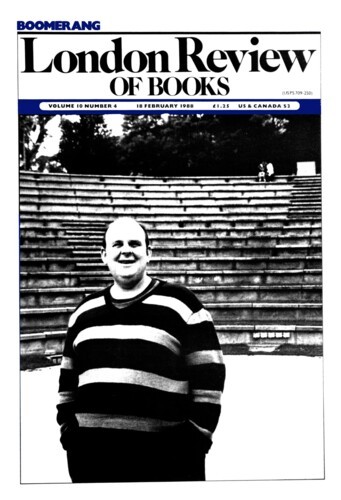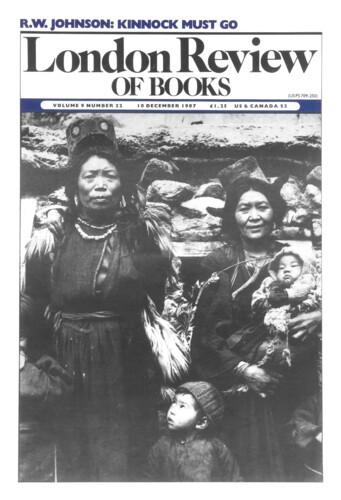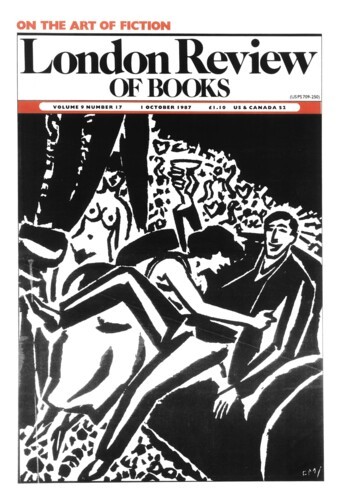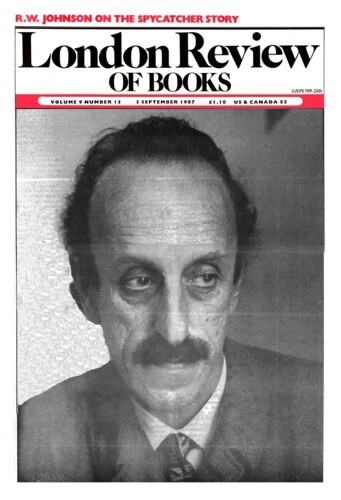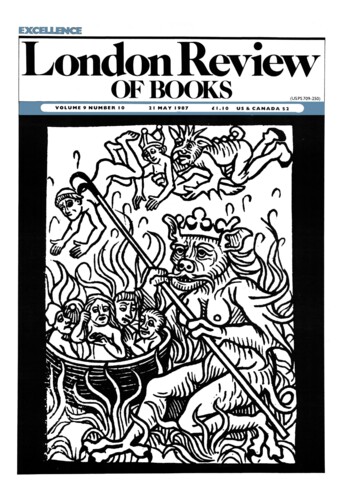Diary: On Raymond Williams
Patrick Parrinder, 18 February 1988
No one could describe the last ten years as an uneventful period in English criticism, but there are times, and this February is one, when it all seems to boil down to a couple of brawls and a series of obituary notices. One by one the giants have departed: Leavis, Richards, Empson, and now Raymond Williams. The first three had come through to ripe and embattled old age, but Williams was still in his prime as a writer and critic. When I visited him in Saffron Walden in late December, he had been laid up for several months with a painful but curable illness (not the one from which he died). His talk, however, was vigorous and forward-looking. We spoke of the research that he and his ever-supportive wife Joy had done for a major historical novel, People of the Black Mountains. Then we laughed over the paperback reissue of his first novel, Border Country, with the old signalman, Harry Price, on its front cover: the artist had endowed Price with Williams’s own unmistakable features. That now seems painfully close to the mark. In the novel, Price was shown dying from a series of strokes. On 26 January, Williams suffered a fatal heartattack.
